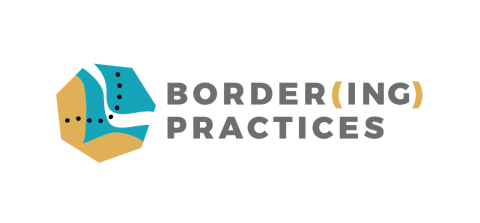ABOUT THIS RESEARCH
Border(ing) Practices: Systemic Racism, Immigration & Child Welfare is a collaborative research project led by researchers at the University of Toronto and the University of Victoria working in partnership with child welfare, immigration, and gender-based violence service providers and advocates within Ontario and British Columbia. We aim to understand how immigration policies and systemic racism shape child welfare policies and practices with children, youth and families.
LEAD RESEARCHERS
- Rupaleem Bhuyan, Professor, Faculty of Social Work, University of Toronto
- Mandeep Kaur Mucina, Professor & Chair, Child and Youth Care, University of Victoria
website: www.borderingpractices.com
STUDY OVERVIEW
Through storytelling, visual art, and interviews, the “Voicing Resistance to Systemic Racism” study aims to amplify the voices of youth, parents, and caregivers who have been involved with child protection services in Canada, while navigating precarious immigration status. This study was developed in collaboration with a Research Advisory Committee (RAC) and is guided by community-engaged research practices.
Study Objectives
- Create spaces for immigrants to share stories about how their involvement with the child protection system shaped their lives and families
- Explore how involvement with the child welfare systems shapes the settlement experiences for immigrants who have a precarious status
- Document and explore how racialized immigrant youth and families understand and respond to pressures to conform to Canadian norms when involved CPS
Who Can Participate?
-
Racialize Youth Who:
- Are ages 18–30 in Ontario or 19–30 in British Columbia
- Have had direct or indirect contact with child protection services as a child or youth
- Were born outside of Canada, or lived with noncitizen family when CPS was involved
- Can speak conversational English
-
Racialized Immigrant Parents or Caregivers Who:
- Are ages 18 or older in Ontario or 19 or older in British Columbia
- Have had direct or indirect contact with child protection services as a parent or caregiver
- Were not permanent residents or Canadian citizens at the time they were involved with CPS
WAYS TO PARTICIPATE
(1) Fearless Methodology Workshops
- WHO:
Racialized immigrant youth (ages 18–30) who had any experience with child protection while living with a parent or caregiver without permanent status in Canada. - WHAT:
Join a one-day (6-hour), in-person art workshop led by a trained artist and researcher.
We’ll follow a step-by-step creative process called Fearless Methodology to explore stories of strength, survival, and resistance. - WHEN:
Summer & Fall 2025 (date and time will be shared with participants) - WHERE:
Downtown Toronto (exact location provided after registration)
WHAT ELSE YOU SHOULD KNOW:
- You’ll get an honorarium (thank-you payment), snacks or lunch, and help with travel costs
- We protect your privacy. You do not have to share your name or immigration status
- You can leave at any time – your choice matters
- Together, we’ll create a group art piece to share at a future community event
- You can also choose to do a confidential one-on-one interview
(2) Confidential, One-on-One Interviews
- WHO:
Racialized immigrants in Ontario or BC who were involved with child protection services (as a parent, caregiver, or youth) - WHAT:
Talk privately about how child protection affected your family, your immigration journey, and your life in Canada. - WHEN:
Interviews will be held in Summer & Fall 2025 - WHERE:
In-person (Toronto or Vancouver) or online by phone or video
WHAT ELSE YOU SHOULD KNOW:
- Participation is confidential and voluntary
- You can and can be withdrawn before analysis begins
Steps to Ensure Data Protection & Confidentiality
- Only members of the research team will have access to participant information and data
- Honorarium and travel support provided
- We can arrange an interpreter if needed
Funding Information
*This project is supported by a grant from the Social Sciences Humanities Research Council of Canada and the Splane award for Social Policy and Social Innovation

